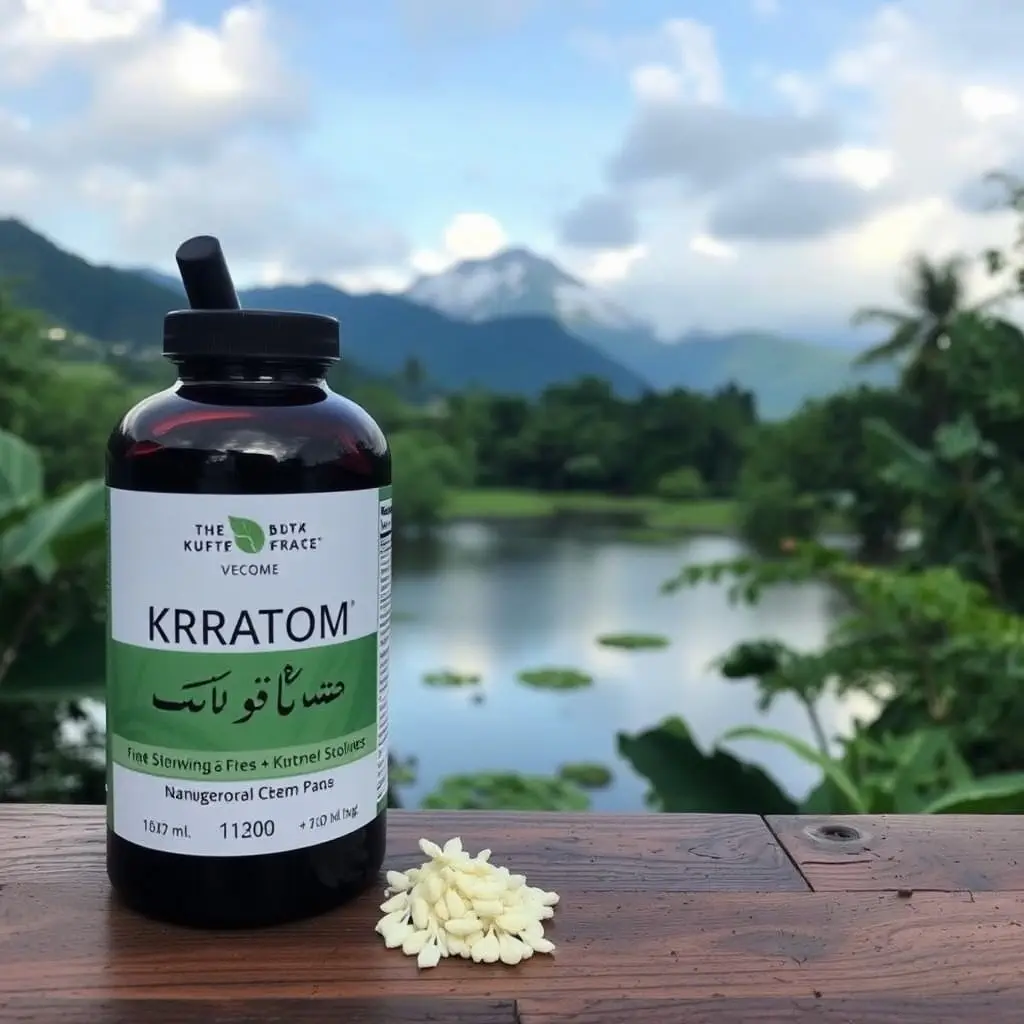Kratom, derived from the Mitragyna speciosa plant, is a natural supplement that has been traditionally used for its stimulating and calming effects. Its potential to enhance mental resilience in athletic training requires careful strain and dosage selection, used with medical guidance due to its varying impact on individuals. For those traveling with kratom, it's crucial to be aware of its legal status, which can vary by region and change over time. In the United States, as of the latest update, kratom is federally legal, but state or territorial regulations may still apply. Travelers should use capsules for transport, keep them in carry-on luggage, and follow TSA guidelines to avoid any issues at security checks. When crossing international borders, it's essential to adhere to the customs regulations of the destination country, as kratom is a contentious substance with stringent import rules. Athletes must use kratom responsibly within a well-rounded training program, considering its influence on pain sensitivity, energy levels, and fatigue, and always seek personalized advice from healthcare professionals to ensure safe and legal use, especially when traveling.
Embarking on a journey towards mental fortitude and physical excellence often requires a multifaceted approach, especially when incorporating natural supplements like kratom into your training regimen. This article delves into the nuances of mastering mental resilience through strategic integration of kratom, offering insights into its role in enhancing athletic performance for strength and endurance. Additionally, we navigate the complexities of traveling with kratom, addressing legal considerations, packing tips, and best practices to ensure a seamless experience. Whether you’re an athlete or a fitness enthusiast, understanding how to effectively use kratom while on the move can be pivotal in maintaining your training routine.
- Mastering Mental Resilience: Integrating Kratom into Your Training Regimen
- Navigating Travel with Kratom: Legalities, Packing Tips, and Best Practices
- Enhancing Athletic Performance: The Role of Kratom in Strength and Endurance Training
Mastering Mental Resilience: Integrating Kratom into Your Training Regimen

Integrating kratom into your training regimen as a means to enhance mental resilience is a practice that requires careful consideration and responsibility. Kratom, a plant-based supplement derived from the leaves of Mitragyna speciosa, has been traditionally used for its stimulant and sedative effects. For athletes and individuals seeking to improve their mental toughness, kratom can be a valuable tool when approached with discernment. The key to leveraging kratom effectively lies in identifying the optimal strains and dosages that promote focus and fortitude without impairing performance or health. It’s crucial to consult with a healthcare professional before incorporating kratom into your routine, as its effects can vary significantly from one person to another.
When it comes to mental resilience training, kratom can serve as a potent adjunct to cognitive and physical exercises. For instance, certain strains of kratom, such as those with higher concentrations of mitragynine, may enhance concentration and emotional control during high-intensity workouts or competitions. Additionally, the analgesic properties of kratom can alleviate pain, allowing for longer training sessions without the interruption of discomfort. However, it’s important to navigate the legal landscape regarding travel with kratom, as its status varies by country and state. Always ensure that you are in compliance with local laws when transporting kratom across jurisdictions to avoid any legal complications. By responsibly integrating kratom into your training, you can potentially unlock new levels of mental fortitude and endurance.
Navigating Travel with Kratom: Legalities, Packing Tips, and Best Practices

When planning to travel with kratom, it’s crucial to be well-informed about the legal status of the substance in your destination and layover locations. Kratom’s legality varies by country and even within different states or provinces in the same country. The DEA previously classified kratom as a Schedule I controlled substance, but following public outcry and legislative action, its status has been revised. As of my knowledge cutoff, kratom is legal at the federal level in the United States, but individual states or territories may have their own regulations. Always verify the current legal status before your journey to avoid any legal complications.
For those looking to travel with kratom, it’s important to pack it responsibly. Consider using kratom capsules instead of powder, as they are less likely to raise suspicion and easier to transport without spillage. When packing, ensure that the kratom is placed in your carry-on luggage to maintain control over it during transit. Additionally, adhere to the Transportation Security Administration (TSA) guidelines for carrying medicines or supplements on flights. It’s advisable to keep the kratom in its original packaging with a clear label indicating its contents for security screenings. Remember to check the customs regulations of your destination country as well, as they may have specific rules regarding the importation of dietary supplements and herbal products. By preparing carefully and staying informed, you can successfully navigate travel with kratom while adhering to both legal requirements and best practices for transportation.
Enhancing Athletic Performance: The Role of Kratom in Strength and Endurance Training

Kratom, a plant native to Southeast Asia, has garnered attention in the realm of athletic performance enhancement due to its potential impact on strength and endurance. When consumed responsibly, kratom can play a pivotal role in an athlete’s training regimen. Its alkaloid profile, particularly mitragynine and 7-hydroxymitragynine, is believed to influence physical performance by modulating pain perception, increasing energy levels, and potentially reducing fatigue. Athletes seeking to incorporate kratom into their training must navigate the complex legal landscape surrounding its use, ensuring they comply with local laws and regulations when traveling with it. This is crucial, as the ability to transport kratom across state or country lines varies, and possession may be restricted or prohibited in certain jurisdictions.
Incorporating kratom into strength and endurance training requires careful consideration and monitoring of its effects on an individual basis. Users should start with low doses to assess their tolerance and gradually adjust as needed. It’s essential for athletes to maintain a balanced approach to training, including proper nutrition, rest, and recovery practices alongside the use of kratom. Additionally, athletes should be aware that while kratom may offer benefits, its effects can vary significantly among individuals due to factors like metabolism, personal sensitivity, and the specific strain used. Therefore, it’s advisable for athletes to consult with healthcare professionals or sports nutritionists before integrating kratom into their training routine, especially if they plan to travel with it for competitions or training camps.
Incorporating kratom into mental toughness strategies can be a beneficial addition for athletes seeking to enhance their resilience and performance. This article has delved into the intricacies of mastering mental fortitude while utilizing kratom, provided travel tips for those who wish to carry it across borders, and examined its role in bolstering strength and endurance. While it’s crucial to adhere to legal guidelines when traveling with kratom, careful planning ensures that athletes can maintain their training regimen without interruption. As a closing point, it’s evident that with the right approach and understanding of both mental conditions and kratom’s properties, athletes can effectively integrate this supplement into their training to potentially achieve peak performance. Always prioritize compliance with local laws and consult with healthcare professionals when incorporating kratom into your wellness plan.






